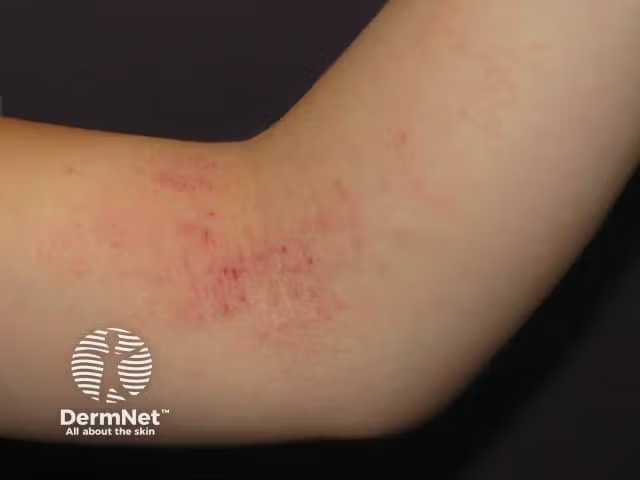- Case-Based Roundtable
- General Dermatology
- Eczema
- Chronic Hand Eczema
- Alopecia
- Aesthetics
- Vitiligo
- COVID-19
- Actinic Keratosis
- Precision Medicine and Biologics
- Rare Disease
- Wound Care
- Rosacea
- Psoriasis
- Psoriatic Arthritis
- Atopic Dermatitis
- Melasma
- NP and PA
- Skin Cancer
- Hidradenitis Suppurativa
- Drug Watch
- Pigmentary Disorders
- Acne
- Pediatric Dermatology
- Practice Management
- Prurigo Nodularis
- Buy-and-Bill
Article
Meet the Investigator: Anna De Benedetto, M.D.
Author(s):
In this interview, Dr. Anna De Benedetto discusses what initially drew her to dermatology and what inspired her to study atopic dermatitis in the elderly.
Dr. De Benedetto

In this interview, Dr. Anna De Benedetto discusses what initially drew her to dermatology and what inspired her to study atopic dermatitis in the elderly. Read more about her research here.
Q. When did you know that you wanted to practice dermatology?
Since I started medical school, I knew I wanted to be a dermatologist; I have always found intriguing that dermatologic disorders expand across a number of disciplines, including infectious diseases, internal medicine, rheumatology or oncology - just to mention a few. After starting my training in dermatology, I further realized the complexity of immunology and biology underlying many skin disorders.
Q. What inspired you to investigate atopic dermatitis in the elderly?
I have been involved in translational research in atopic dermatitis (AD) for several years now. AD is a complex chronic disorder that deeply (and negatively) affects the quality of life of patients and their family/caregivers. Although AD affects up to 20% of children, many adults and elderly patients are affected as well.
On many occasions, I found myself truly moved by elderly patients presenting to my clinic for “itchy rash.” One was a very nice 92 year-old gentleman who presented in my clinic for evaluation of worsening AD. He drove for over two hours to seek help. The patient had mild AD for all his life, but progressively worsened over the past 5 years. Otherwise, he was in relatively good health and very sharp mentally. He could not sleep comfortably because the constant itch and pain on the skin; his extremities were bruised all over; and he was constantly bleeding due to a mix of photo-aging, long use of topical steroid, scratching and anti-coagulant medication. He had withdrawn from social activities and even avoided seeing his family. He had seen many physicians over the years, but he was never given much more than just topical steroid and “anti-itch” medications, mostly because an unclear diagnosis and concern for safety profile of immunosuppressive medications at this age. Unfortunately, over the time I witness too many similar stories.
Looking at the literature on atopic dermatitis in elderly, I realized very little has been done for this age group (>65 yo). The typical age cut off for clinical trial or mechanistic studies is 65, thus elderly patients are virtually excluded. In this review article, we summarized current knowledge regarding the pathophysiology, diagnosis and management of AD in the elderly population with the goal to identify areas of insufficient information to be explored in future investigations.
Q. What has been the proudest moment of your career so far?
This is a very exciting time for AD community - there is a lot of excellent research going on. I am actually very proud of my research in this field: I like to think it is a piece of the big puzzle we need to solve to fully understand this complex disease.
The first biologic medication for AD has been approved few years ago and we have many more therapeutics on the horizon. Each time the patients in the clinic or clinical trial tell me that the quality of their life has finally improved - that they can live their life without worries about AD - it is always a special moment for me. Seeing patient improving provides that invaluable boost to continue my clinical and research work with the goal to always provide the best care.






